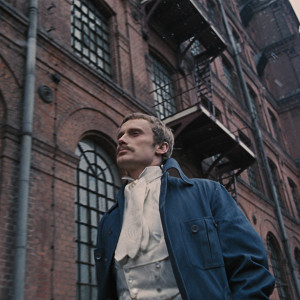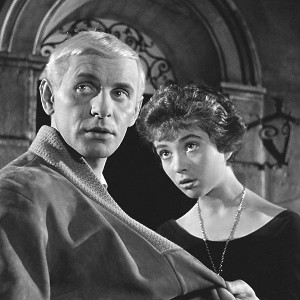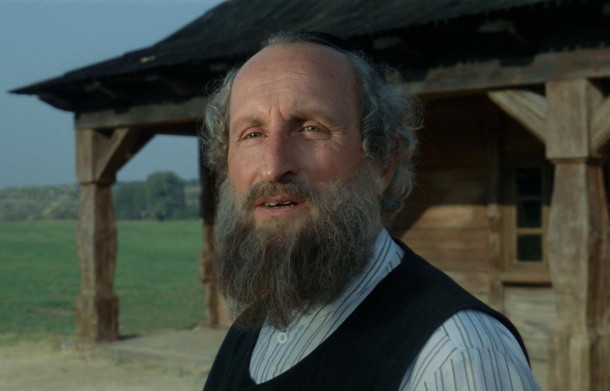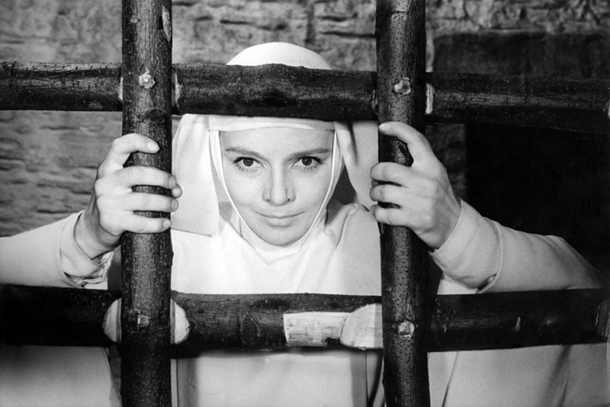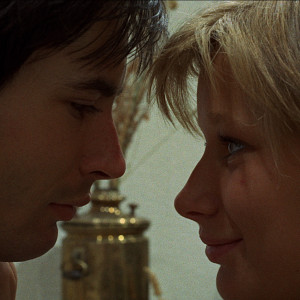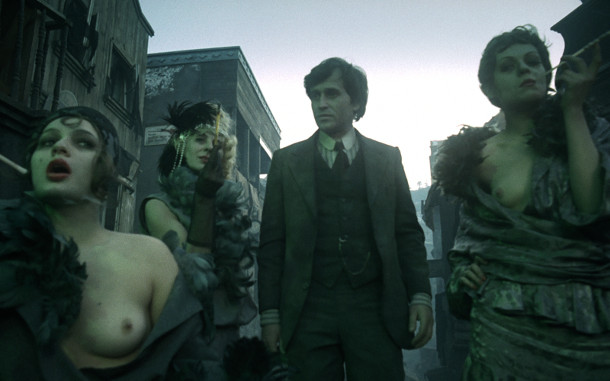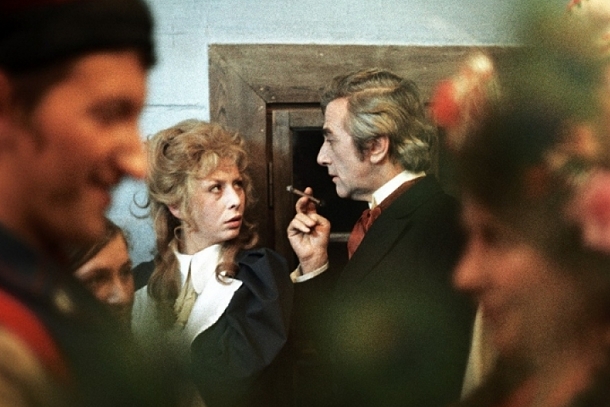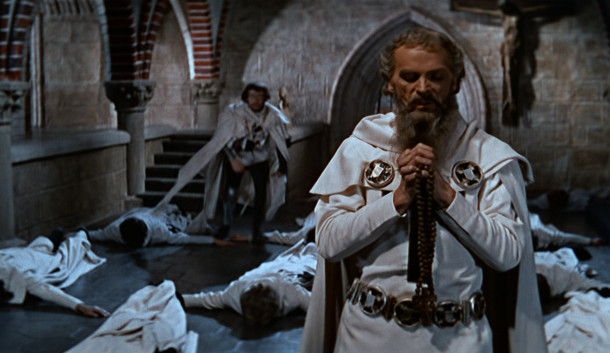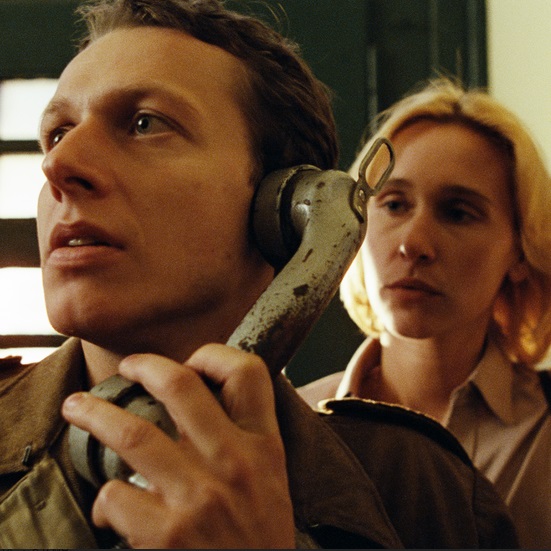There’s something mysterious, somewhat regal, and distancing about trains. On one level, a train is simply a form of mass transportation of the sort we see a fair amount of these days. But trains were the first (never underestimate being the first), and they still capture our collective desire for exploration, for new horizons, for new beginnings. A train is a way out of the past toward a future that almost has to be brighter. There’s a reason we have the expression “a light at the end of the tunnel.”
Trains also create an odd sort of distanced intimacy. People are cramped together physically, but often they are strangers otherwise. They share this small space, but little else about their lives or experiences. Everyone on a train is a mystery that you in some ways understand more intimately than most others. This mystery, and the twin emotions of dread and possibility that come with it, forms the center of Night Train, director Jerzy Kawalerowicz’s Hitchcock homage.
